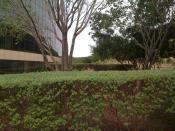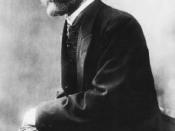Matthew J. Hornsey; Louise Majkut; Deborah J. Terry and Blake M. McKimmie
of the University of Queensland, performed two conformity experiments on university
students. These experiments were done too measure the influence of group norms on
student's attitudes.
Experiment one involved 205 university students who rated themselves as being
pro-gay law reform. The students were given numerous questions that asked them to rate
the moral basis for their attitude, and what they believed society's attitude was.
Following the questioning, the participants were told that the study is ongoing, and
previous students have been questioned on the same issues; this was done to manipulate
group norm. They were told previous students were completely for pro-gay law reform,
or completely against it. The final test that the student's were given, they were
questioned regarding the likelihood of them expressing their support through either,
public intentions, or private intentions. Predictions were made that participants would
more likely show private support when they had the support of a group; however it was
felt that conformity would occur with willingness to display public support.
In experiment two, 110 University of Queensland students stated that they were in
favor of a government apology to Aborigines, they were told that previous
students were either, supportive or non-supportive of a government apology. After
receiving this information students were questioned as to whether they would show
public or private support on this social issue. Predictions were made that group support
would be essential to those with those with a low moral basis for attitudes, yet those with
a strong moral basis would show no conformity.
Basically predictions were accurate; in both experiments students that were
keener on private support, had a lower moral basis and would be more likely to show
private support when group support was apparent.


